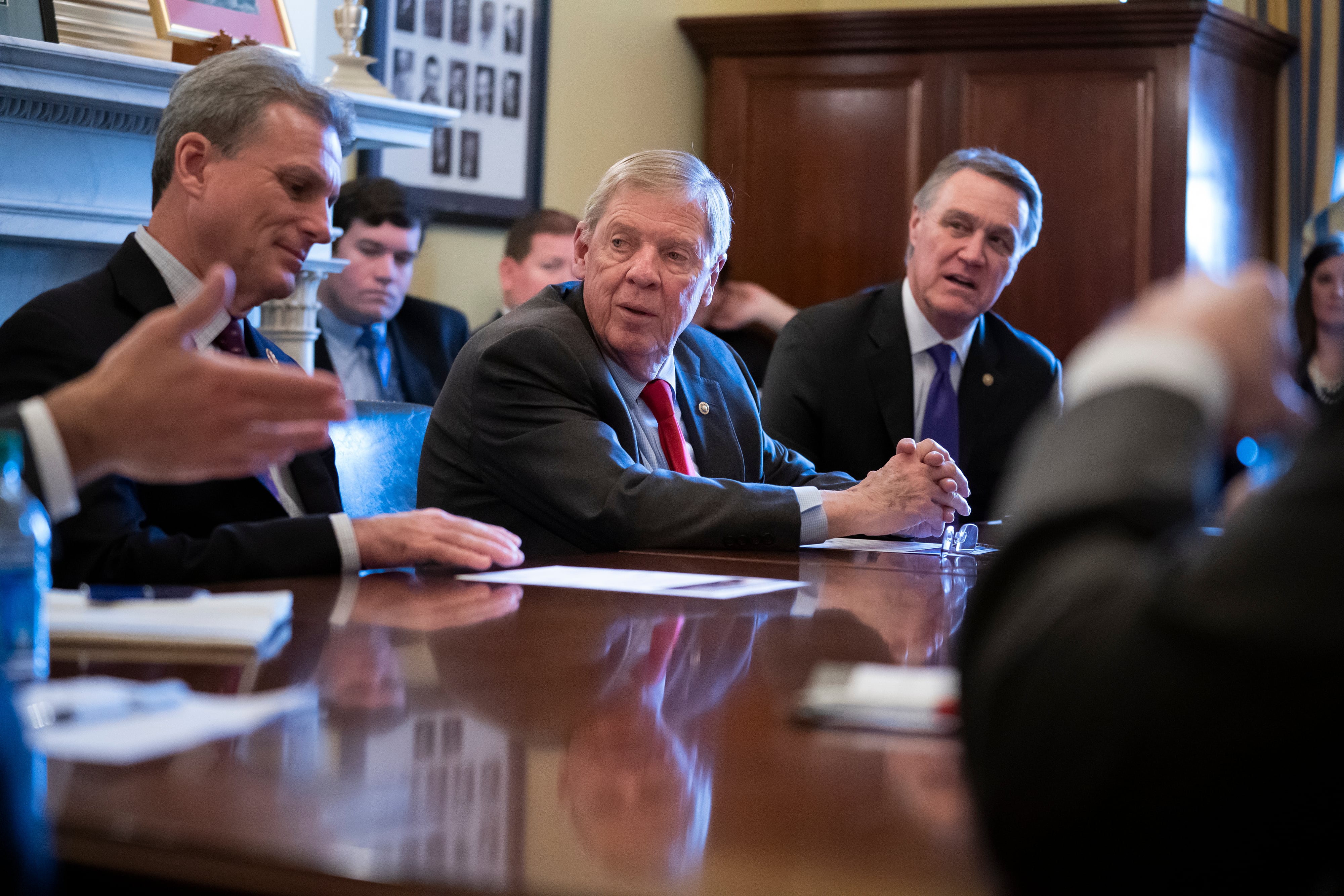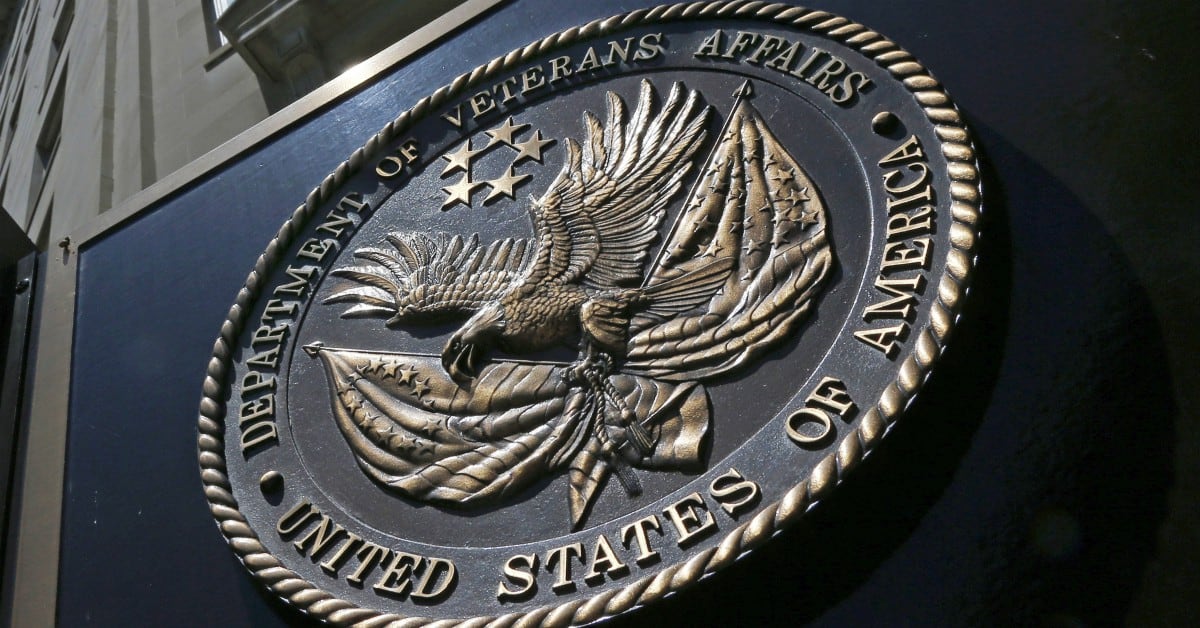Veterans Affairs Secretary Robert Wilkie has a bold prediction for the 2020 election: His department’s programs are going to come out a winner.
“I don’t see how, no matter what is in store electorally, how anyone goes back on selling VA short in terms of the budget,” Wilkie said in a sit-down with Military Times on Thursday. “We have massive (reform) programs that were undertaking, like the electronic health record. Those are expensive.
“Supply chain reform is expensive. Meeting the 400,000 personnel level that has been set by the Congress is expensive. Keeping up with new technologies is expensive … So I expect the budget to go even higher. And I haven’t heard anybody get up and say publicly ‘enough is enough’ with the VA budget.”
Wilkie, who took over the $200-billion-plus department 16 months ago amid substantial leadership turmoil within VA, said he believes the department is stronger than it has been in decades, thanks to legislation passed by lawmakers in recent months and institutional reforms from the administration.
RELATED

But he does worry about whether those improvements have gotten the attention of the public. He said internal surveys and metrics have shown increased satisfaction among veterans and employees, but that doesn’t always translate into positive headlines for VA.
“My job is to make sure that we do tell our story,” he said. “Now, do we have warts? Absolutely in organization this big. But in the context of things, where we have been and where we are now, it's tremendous story, and it's a testament to the hard work of the people who work here.”
With Veterans Day approaching, here are the top VA’s executive’s thoughts on successes and challenges with his department:
Portions of this transcript have been edited for clarity and length.
On the state of VA:
We're in a much better place than this department has been in years. It has to do with the caliber of the leadership that we have here, the amount of support that we have from the White House, and the fact that people recognize that we are not only listening to them within the system but we are also changing the way we do business.
You see it in all the surveys. Customer satisfaction, employee satisfaction, it has never been higher. We’ve had 3 million more (medical) appointments in this last year than we did the year before. That means people are voting with their feet. And I’m very proud of that.
RELATED

On the Mission Act and changes to outside care programs:
Since June 6, we have had incredible success. The (new) decision support tool is working. We have certified over 6,000 urgent care clinics … We’re having medical networks that peeled off because of mismanagement (of earlier community care programs) coming back, because they see that we are paying making payments.
Where I’ve seen the explosion and requests to go outside of the network has been in urgent care. And that makes sense, because that keeps people out of emergencies. But I couldn’t be happier so far. (Veterans) are choosing to stay.
RELATED

On veterans suicide and the presidential task force tackling the issue:
Let’s talk about this in the context of American society. We are not divorced from problems that plague America. Teenage suicides are up 56 percent in the last 10 years. It’s the leading cause of death among American youth. The numbers are going up all across the country.
Fourteen of the estimated 20 veterans deaths a day are (individuals) not in the VA system. That’s our biggest challenge. But are we going to get to zero? No, human life is not predictable, it is not linear. We will never be able to eliminate it completely.
Mental health is just part of the problem. Not everyone who takes a life has a mental illness. Addiction, homelessness, basic human tragedy — we can’t divorce ourselves from the fact that some people go through a terrible trauma at one time in their lives, and that leads to leads to a tragedy.
What we haven’t had is any national conversation about this. We’ve never had a presidential Task Force look at this. We’ve never had a whole of government approach. We’ve never opened the aperture on support for non-governmental groups, for charities to become part of the solution.
RELATED

On burn pits and disability cases related to toxic exposure:
We rely on the National Academy of Science engineering and medicine for their expertise and telling us what the way forward is and treatment. There is this is too serious topic to deal with anecdotally.
I’m committed, particularly on herbicides, on the Agent Orange issue, to present (changes) to the Congress next year. The decisions will be based on the science coming out of that institution, so that we get it right.
I want to do the same thing, particularly as we move closer to determinations on burn pits, to make sure that this is treated clinically and efficiently. We’ve got to get it right.
RELATED

On accountability and recent criticism of the VA Office of Whistleblower Protection:
We’ve put in new people at the office. The Inspector General report (released last month) is pretty clear about to deficiencies there, which we are working on, and they predates this team.
But we have been removing people who are not living up to their oaths. I don’t care how I do it, what mechanism, what statute. We are moving out.
And my pledge is to do as much as I can to make sure that there is accountability up and down the chain. It’s because of duty and a sense of honor. And I think people in the chain appreciate that. They know no matter where you are, that we’re all held to a standard.
On impeachment and congressional tensions with the White House:
My concern is always “Are (lawmakers) going to do their business and pass their appropriations bills?” That’s an issue that has absolutely nothing to do with impeachment. They’ve been having trouble with that for a long time. And we need them to do their work, so that we are clear as to how much we can spend and what we can spend it on.
I keep saying that when it comes to this president, I’ve had nothing but support. I can’t think of any presidential candidate in the post-WWII era who has made veterans the centerpiece of his campaign and then fulfill those promises.
He is allowing me a very free hand to engage in fundamental reforms and given me the ability to go to Congress with a budget (increase) the likes of which we’ve never seen.
Leo covers Congress, Veterans Affairs and the White House for Military Times. He has covered Washington, D.C. since 2004, focusing on military personnel and veterans policies. His work has earned numerous honors, including a 2009 Polk award, a 2010 National Headliner Award, the IAVA Leadership in Journalism award and the VFW News Media award.





